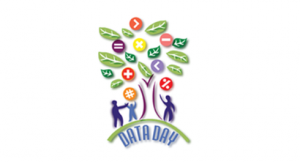Harnessing data to tell your story
 •
•
In the age of “big data” everyone seems to be swimming in information. But how can organizations and leaders use the best research and statistics out there to drive social transformation and advance their mission?
These themes were front and center in Boston recently, as hundreds of local nonprofit, civic and municipal leaders across gathered at Northeastern University on June 26, including members of the Opportunity Nation team. We explored the different ways data is driving social change in Metro Boston and learned new ways to more effectively weave technology, data and storytelling.
Boston Data Day 2015: Democratizing Data to Drive Community Change, which was co-hosted by Northeastern University, the Metropolitan Area Planning Council and the Boston Indicators Project, placed a particular emphasis on how data can better explain the gaps in opportunity even in an economically vibrant area such as eastern Massachusetts.
“How can we create a more just and prosperous society for our children?” asked Jessica Martin, director of the Boston Indicators Project, a question that framed the day’s discussions.
“We have more data available than ever before,” she said. “But there is a need for using data to improve understanding and truth-telling.”
Cities can help expand economic mobility to residents by building pathways to success and increasing access to key drivers of opportunity such as affordable housing and transportation, said Jessica Partridge, research analyst at the Metropolitan Area Planning Council. Other smart policies that can expand economic mobility and decrease income inequality include children’s savings accounts that help low-income students attend college, and breaking down segregation so that more residents have access to good schools and jobs.
Ana Patricia Muñoz, director of community outreach research at the Federal Bank of Boston shared a recent report, The Color of Wealth in Boston, to illustrate glaring disparities of wealth inequality among different ethnic groups. Wealth inequality, she argues, is even more important than income inequality as it also includes access to credit and other assets such as housing and savings that can serve as a buffer in times of economic hardship. Families without these assets are at heighted risk for falling into poverty if they lose a job, for example.
Big data is here to stay, the speakers agreed. But rather than bombard people with information, or drown in it ourselves, we need to harness valuable information in ways the public can readily understand and use to make smart decisions and guide sound policy.
Opportunity Nation values data-driven conversations and solutions that expand economic opportunity to more Americans. Events like @DataDayBoston are extremely helpful as we navigate the steady stream of infographics, statistics and new reports that are constantly emerging.
A huge thanks to the organizers and the participants of this informative, engaging event. Click here if you’d like to learn more about this workshop including videos and PowerPoint presentations that were shared that day.









